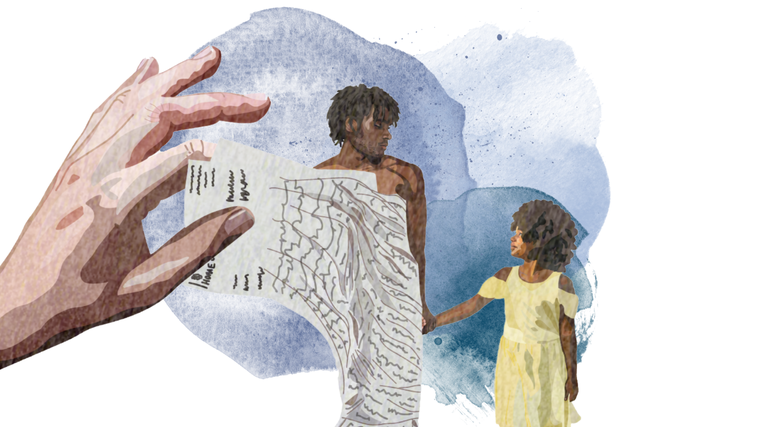Abena’s story: fear of destitution
“I had a few friends who would do a collection for me among themselves,” says Abena.
She has lived in the UK since 2001 – but spent much of the past decade without the right to claim most forms of benefits.
That’s because another of May’s reforms was to drastically expand the use of a New Labour-era policy known as “no recourse to public funds”, or NRPF, a condition imposed on both undocumented people and many of those with temporary visas. People can apply to have it lifted if they can show that they – or their children – are at risk of destitution. But this process takes time, and usually requires legal advice.
To complicate matters, the government also cut legal aid for most immigration cases in 2012, meaning people who can’t afford to pay lawyers must hope there is a charity with the capacity to help them.
“[Praxis] are probably one of the biggest free immigration advice providers in London, as charities go,” says Lant. “But we could fill our casework team ten times over and still people would need more because there’s such huge demand.”
Abena, a single mother of two, has spent years doing several low-paid jobs at a time – including as a cook – to make ends meet. She works more than 40 hours a week, but the money she earns is not enough on its own.
“I was living in fear of the unknown,” she says, recalling the period she was under NRPF restrictions. Her children were not even allowed to claim free school meals during that time. Instead, her church pastor would bring round food for her and the children.
“One Christmas the crisis centre gave us a few toys,” she says.
“I’m not harsh on my kids but when my [eldest] son turned 16, I begged him to go out and get a job.” She says her son, now 17, currently works eight hours a week on top of his studies. “It's not fair on him because he is in full-time education, but what could I do? I needed the help.”
Abena still worries about the future. She recently applied to renew her current visa and is waiting to see whether the Home Office decides to impose NRPF restrictions again.
“I guess I overwork myself, which I know – my family keeps on telling me to take it easy. [But] I can't take it easy even if I want. I have to do this in order to survive.
“I don’t know how I do it – I say I get my motivation from God.”


Comments
We encourage anyone to comment, please consult the oD commenting guidelines if you have any questions.